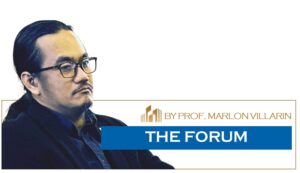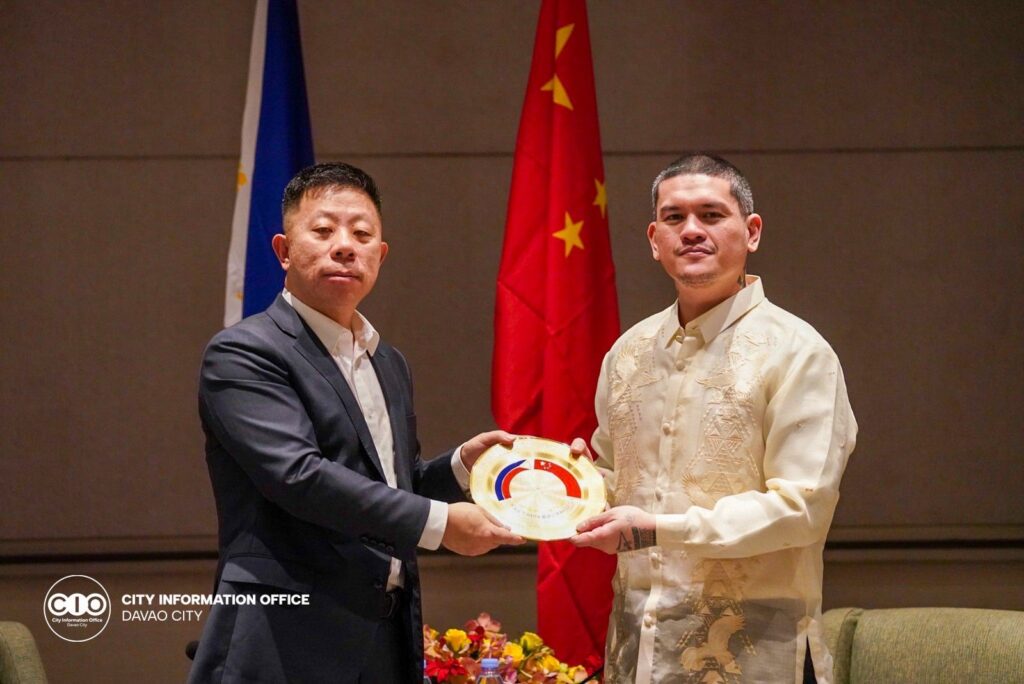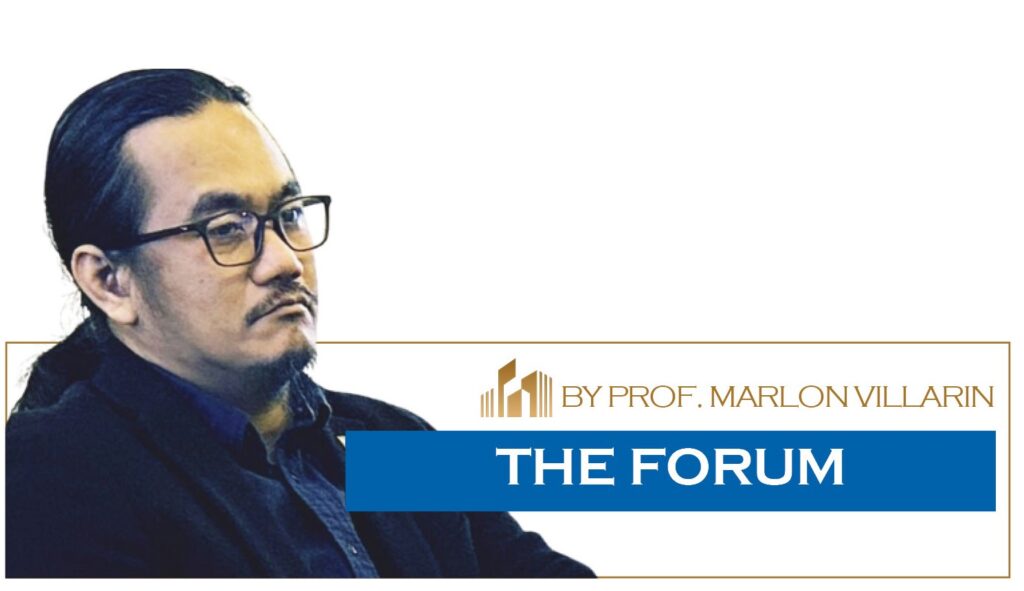The Filipino people has endured a long season of grand promises and quieter desolations—milestones announced with fanfare, investigations that sputter, and a steady drumbeat of findings that never quite translate into the change that ordinary Filipinos expect and deserve. More than three months have passed since the DPWH plunder scandal first erupted into public view, yet the culprits remain unpunished and largely unseen in the pages of accountability that could truly reframe a broken system. This silence is not a neutral pause; it is a troubling signal about sincerity, independence, and the integrity of institutions meant to guard the public purse—the Senate, the Inspectorate and Compliance Office (ICI), and the various investigative bodies that exist to serve justice rather than political convenience. The core of this worry is not merely procedural delay but a question of what accountability looks like in practice. When a scandal touches the skeleton of public infrastructure—substandard workmanship, ghost projects, money that vanishes into opaque routes—the stakes are not abstract. They are concrete: schools that do not stand, bridges that fail to connect, embezzled funds that could have funded medicines or classrooms.
The general public deserves, and rightly demands, that investigations are thorough, transparent, and timely, with real consequences for misfeasance and malfeasance alike. Yet the reality, as observed by many Filipinos, seems to lag behind the public’s hunger and thirst for public accountability and justice. The recent video expose of former Congressman Zaldy Co has emerged at a moment when scrutiny is both possible and precarious. On the one hand, the exposure is promising: it reaches directly to accountability by naming at least some public figures across the chain of governance, from municipal officials up to the presidential level. It asserts that there is a throughline—from the smallest government unit to the highest offices—that can be traced in the mechanism of graft and corruption. If true, this is exactly the kind of candor that accountability mechanisms should invite: a courageous, perhaps uncomfortable, willingness to connect dots and hold all responsible to account, regardless of status or proximity to power. On the other hand, this same expose is challenging because it lacks robust, and substantive evidence.
The danger of messaging without substantiation is real. In a republic where narratives can easily outrun facts, such content risks deepening polarization rather than forging a pathway toward unified action. The public may respond with either reckless zeal or cautious skepticism, both of which can derail the very process that the expose purports to catalyze. The balance between fearless disclosure and verifiable proof is delicate, but non-negotiable if we are to preserve the legitimacy of our institutions and the trust of the citizenry. To navigate this balance, we must turn to the fundamental principle that undergirds every democracy: the rule of law and the insistence on evidence.
The public deserves to see a triangulation of facts, not a single narrative that can be weaponized for political ends. Triangulation means cross-referencing the claims with official documents, procurement records, audit reports, and independent investigations. If a serious inquiry is to succeed, it must summon the courage of transparent process: open hearings, accessible documents, and a timeline that is comprehensible to ordinary citizens, not mired in bureaucratic jargon. When people feel they are being shown the receipts—where money went, to whom, and for what purpose—their faith in institutions can be restored. Without this, allegations can feel like theater, with little to show in the way of tangible outcomes. Yet one cannot ignore the political reality: investigations in any country—especially one as diverse and complex as the Philippines—are embedded in political currents. It is not inflammatory to acknowledge that political actors have incentives to shape narratives, to emphasize or downplay certain aspects of a controversy, and to leverage public sentiment for or against immediate political gains.
This is not to condemn politics as inherently corrupt, but to recognize that accountability processes must be designed to withstand the centrifugal forces of partisanship. The Senate, the ICI, and allied investigative bodies must reaffirm their independence, their mandate, and their commitment to the public good above partisan convenience. If these institutions permit perception of bias or choose speed at the expense of rigor, the public’s confidence will erode, and the cycle of distrust will continue unbroken. A crucial line that must be drawn, again, is the distinction between allegations and proven facts. The former must be investigated; the latter must be proven in a manner that is public, fair, and legally sound. To the extent that the 2025 national budget controversy is connected to these inquiries, the same standards must apply. The national budget is not a mere ledger; it is a statement of national priorities and a trust placed in public servants to steward scarce resources on behalf of millions of Filipinos.
The upcoming year’s budget, the 2026 cycle, holds the potential both to address past missteps and to prevent future ones. The public must watch how investigations inform budgeting decisions, how procurement procedures are tightened, and how accountability mechanisms are strengthened to deter repetition of the same graft and corruption schemes. In reflecting on these issues, it is important to avoid the trap of cynicism: the belief that no amount of reform can yield real change. Reform is a painstaking, incremental process that requires patience, courage, and an unflinching commitment to the public interest. It is also a process that benefits from civic engagement—teachers, nurses, small-business owners, municipal workers, and other everyday Filipinos who bear the costs of corruption and the benefits of accountable governance. When citizens stay informed, demand transparency, and participate in public discourse, they become a countervailing force against those who would use scandals to further personal or political agendas.
The Zaldy Co expose—promising in its audacity, challenging in its current evidentiary state—should be treated as a diagnostic instrument, not a verdict. It can illuminate gaps in the chain of accountability, but it cannot replace the due process that any robust democracy requires. If there are substantive, verifiable leads, they must be pursued with the same seriousness with which a medical diagnosis would be pursued: methodical, reproducible, and grounded in evidence. If, however, the claims rest on speculation or partial information, the responsible course is to subject them to rigorous verification and to communicate clearly with the public about what is known, what remains uncertain, and what steps will be taken to clarify the record. The broader question remains: why has progress in the DPWH plunder case lagged? There are many possible explanations—bureaucratic inertia, complex legal procedures, international or domestic political pressures, and the sometimes labyrinthine nature of corruption that spans multiple agencies and funding streams. But in a functional democracy, delays are not excuses for inaction; they are a call to examine processes and to address bottlenecks with targeted reforms. Strengthening whistleblower protections, mandating timely audit cycles, enhancing the independence of investigative bodies, and ensuring funding for forensic accounting are not merely technical fixes; they are political commitments to the principle that public funds are sacred and cannot be treated as a playground for malfeasance.
Public trust is fragile, yet not irreparable. It requires consistent demonstration—through actions and outcomes—that institutions are serious about cleaning house. The Senate and the ICI, as arbiters and custodians of accountability, must reaffirm their roles as stewards of justice, not arenas for political theater. They should welcome independent scrutiny, publish timely progress reports, and engage with civil society in constructive, transparent ways. When the public sees a genuine commitment to due process, to the meticulous gathering of evidence, and to the publication of results, trust begins to rebuild, not overnight, but through repeated, verifiable steps toward justice. This moment offers an opportunity to recalibrate how accountability is pursued in the Philippines. It calls for a recalibration of priorities: from rushing to judgment to rigorously verifying evidence; from sensational headlines to substantial findings; from partisan advantage to the people’s welfare. It invites a renewed sense of national solidarity—an understanding that corruption harms not just the fiscals and the law but the very social fabric that binds communities together. When people of different political persuasions find common ground in the desire for clean governance, they can push for reforms that endure beyond particular administrations. In assessing the present, we must also keep an eye on the future. The 2026 national budget looms as a convergence point for vigilance and prudence. It is the instrument through which the government can either institutionalize gains against graft or become a conduit for repeating past mistakes. The public should demand a transparent budget process that incorporates robust anti-corruption safeguards: clearer procurement rules, real-time expenditure tracking, independent post-audit reporting, and a public-facing dashboard that makes financial data accessible and understandable. These steps may seem technical, but they are the practical lingua franca of accountability. What, then, should citizens do moving forward? First, demand transparency without surrendering reasonable doubt. Ask for update schedules, request access to investigation documents where permissible, and participate in public consultations related to budgeting and governance reforms. Second, support independent, credible watchdogs and media outlets that commit to rigorous verification rather than sensationalism. A strong civil society is not a rival to state institutions; it is a complement that helps ensure those institutions remain answerable to the people. Third, advocate for structural reforms that reduce opportunities for graft. This includes reforming procurement processes, tightening project oversight for DPWH and related agencies, and enhancing inter-agency data sharing so that anomalies are detected early rather than after the fact.
And finally, recognize that justice is not a single event but a sustained practice. The goal is not merely to expose wrongdoing but to fix the systemic vulnerabilities that permit it. This requires a long-term commitment to governance that is resilient, transparent, and accountable to every Filipino, regardless of status or political affiliation. It requires a consensus that public funds are a shared resource, administered with diligence, not a perquisite doled out to the few. In the end, the DPWH plunder scandal, the Zaldy Co video expose, and the broader discourse around the 2025 and 2026 budgets converge on a simple, inescapable truth: accountability is the fountain from which public trust must be replenished. Without it, the republic withers; with it, it can flourish.
The road ahead is not an easy one, but it is a necessary one. It demands patience, courage, and above all, an unwavering commitment to the people who placed their faith in public service. Let us walk that road together—with vigilance, with humility, and with an insistence on real, measurable progress. The Filipino people deserve nothing less.




